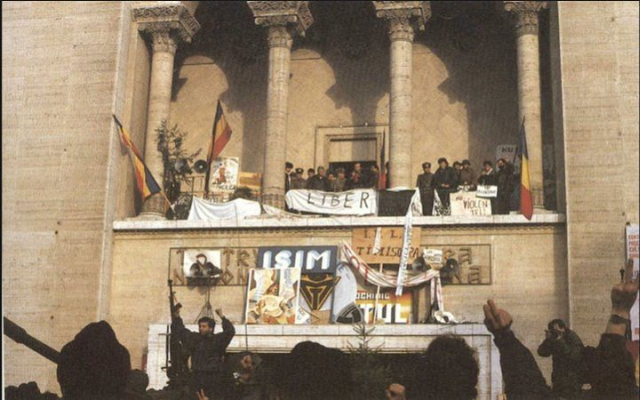Timisoara – 24 years since the anti-communist revolution
For the last 24 years, Romanians have been celebrating their newfound freedom every year before Christmas.

Bogdan Matei, 16.12.2013, 13:30
It all started on the 16th of December in Timisoara. Traditionally more open to what was going on in the rest of Europe, this cosmopolitan city in the west of the country resonated to the changes taking place in Poland, Czechoslovakia and East Germany, where the local dictators, under pressure from the people or the Soviet reformist leader Mikhail Gorbachev, agreed to step down without any bloodshed. In Romania, however, president Nicolae Ceausesu, although increasingly isolated internationally and hated by its own people, had just been unanimously reconfirmed as the leader of the Communist Party at a party congress in November.
The event that triggered what is today known as the Romanian Revolution was a decision of the authorities in Timisoara to evict the reformed pastor of ethnic Hungarian origin László Tőkés, today a member of the European Parliament. The parishioners who gathered to support their pastor were joined by hundreds of other inhabitants of the city, of different ethnic and religious backgrounds, who started chanting anticommunist slogans. They set out for the headquarters of the party county committee, but were met by the security forces, which led to the first clashes. One of the people who were on the street that night recalls:
“We felt it was time to do something for the Romanian people and turn the wheels of democracy. We made a first step towards democracy, towards the start of democracy.”
Openly challenged for the first time, the regime responded mercilessly. The army opened fire on the unarmed protesters. But after years of being humiliated by its own supreme commander, the army soon refused to obey his orders and troops retreated. Now controlled by the revolutionary forces, Timisoara proclaimed itself, on the 20th of December 1989, the first Romanian city “free of communism”.
The uprising quickly spread to other big cities. In Bucharest, the people summoned by the authorities to take part in an enormous rally to condemn the events in Timisoara ended up storming the party headquarters and forcing the communist leader Nicolae Ceausescu to flee the site in a helicopter. Later captured, subjected to a speedy trial and executed, he left in his wake a mix of authentic revolutionaries and second-rate communists.
The people of Timisoara who started the revolution saw it as a betrayal that the new authorities featured many figures associated with the former regime, starting with the country’s first post-communist president Ion Iliescu, who was himself a minister under Ceausescu. It was also the people of Timisoara who, in March 1990, first demanded, unsuccessfully, that former Communist Party activists and secret police agents should not be allowed to hold public office, as in the Czech Republic and East Germany.






























